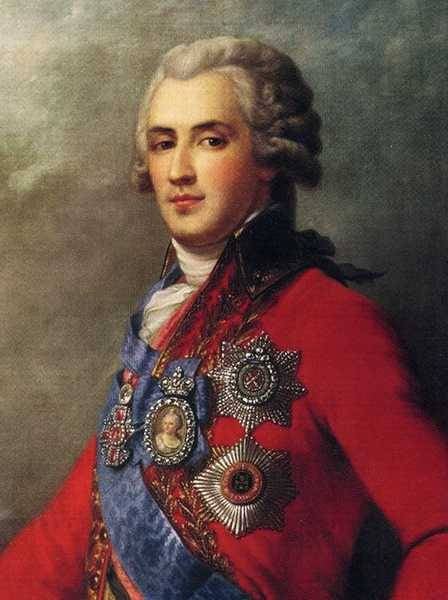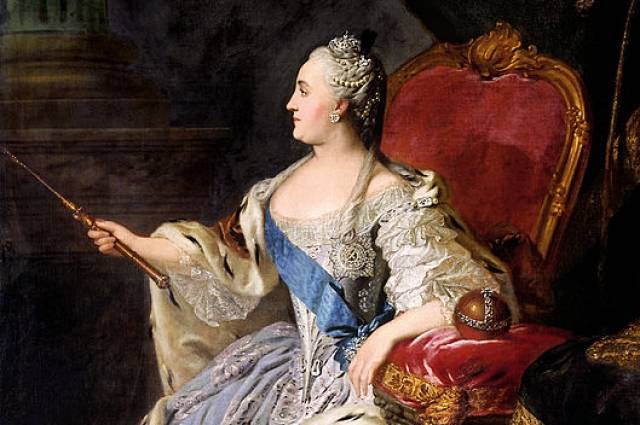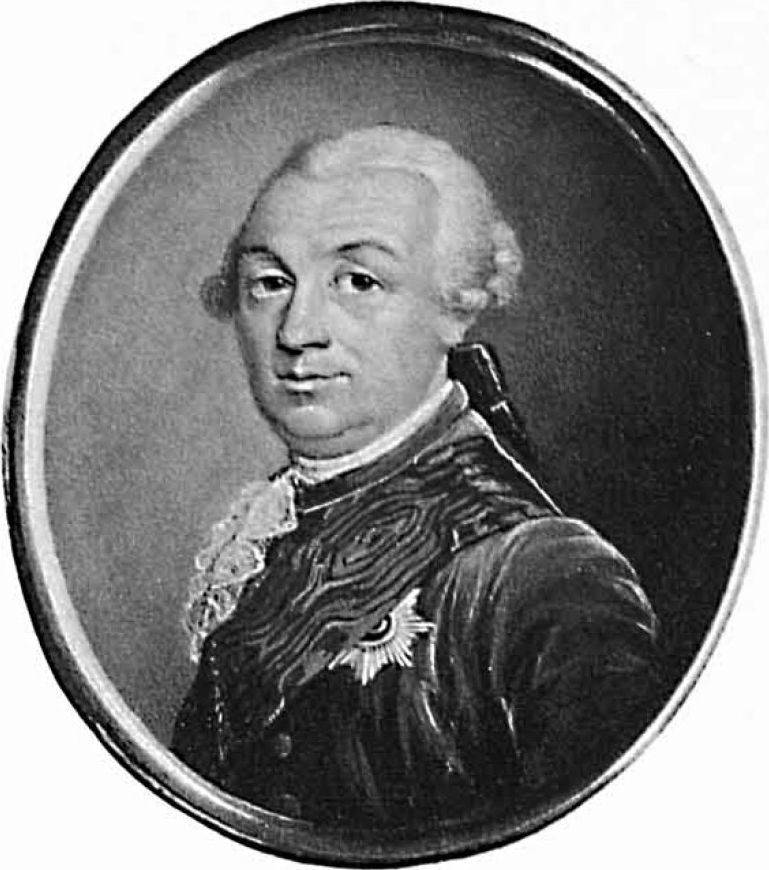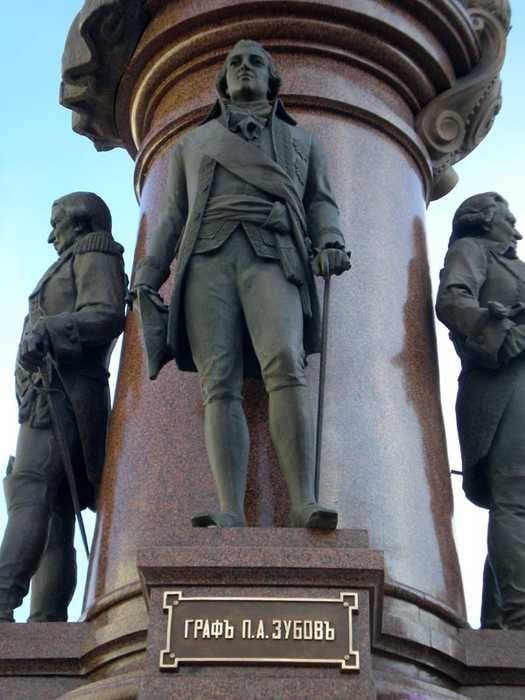"Miserly Knight" Catherine II. The rise and fall of the favorite of the Empress
26 November marked the 250 anniversary of the birth of Catherine's last favorite, Platon Zubov. He was born on November 26 (November old style 15) 1767 of the year. By this time, Catherine, who was older than Plato by 38 years, had been on the throne for five years. Platon Zubov’s father Alexander Nikolaevich Zubov (1727-1795) was a poor nobleman. Even before the birth of his son, in 1758, he retired from the Horse Guards in the rank of lieutenant colonel and got job managing estates for Count Nikolai Saltykov.

Like many other noble children, another eight-year-old child of Platon Zubov was enlisted as a sergeant in the Life Guards Semenov regiment, whose colonel was Empress Catherine II herself. In 1779, the 12-year-old Plato was transferred to the Horse Guards as a watchman. The patronage of the child was made by Count Saltykov, therefore already in 1784, Zubov Jr. was made into cornets, and in 1787, 20-year-old Platon Zubov became a lieutenant of the Horse Guards. In the 1788 year, Zubov was part of the active army in Finland, where already in 1789 he was promoted to the rank of second captain (corresponded to a later staff captain or head captain).
Count Nikolai Saltykov, who served as vice president of the Military Collegium, was not just a high-ranking government official. He had long claimed a more important role in the court and sought to oust Potemkin, who had previously been engaged in the search for favorites for the empress. It is likely that it was with the aim of strengthening his influence at court that the count Saltykov decided to “give a fuck”, as they would say now, to a new favorite from among his acquaintances. Being the longtime patron of Platon Zubov and the head of his father Alexander, Saltykov assisted the appointment of second-captain Platon Zubov as a commander of the convoy accompanying Empress Catherine II to Tsarskoe Selo. So began the "star rise" of a young officer. Although Platon Zubov was not very tall and bright in appearance, he famously pranced to the empress and earned her attention with his bearing and performance. Catherine, who, by the way, was already sixty years old in 1789, laid eyes on the young officer and 22-year-old captain Zubov was invited to have dinner with the empress herself.
Apparently, it was at this moment that Zubov liked the Empress so much that the former favorite of 18, Count Alexander Matveyevich Dmitriev-Mamonov, was already “distant” on 31 June. The Empress preferred the 22-year-old Guards Officer. Catherine’s valet Zakhar noted that Zubov had begun to “walk over the top,” that is, to visit the Empress’s private chambers. 21 June 1789, three days after the breakup of Catherine and Dmitriev-Mamonov, Zubov was honored with an official personal reception at the empress. From now on, every night before 23: 00 began to visit her chambers.

The gratitude of the empress was not long in coming. 24 June 1789 of the year, three days after the actual “production as a favorite”, Plato Zubov was given a ring with a portrait of Catherine and 10 thousand rubles - a huge sum for those times. Ten days later, on July 4 of the year 1789, the 22-year-old captain of the teeth Zubov was promoted to colonel and appointed as empress's aide-de-camp. This allowed him to settle in the quarters of the outhouse adjutant, which had previously been occupied by the disgraced favorite Dmitriev-Mamonov, who had been dismissed from the court. Until now, the wing of the Catherine Palace, built in 1779-1785, is called Zubovsky. October 3 1789, a few months after production as colonels, Platon Zubov was promoted to major general, and in March 1792, to lieutenant general.
What is the young officer of the near mind and unsophisticated appearance could win the favor of the Empress? First of all, of course, he skillfully portrayed sincere love for Catherine, which was very flattering to an elderly 60-year-old woman. Secondly, Zubov depicted a childlike immediacy, “played a child” - he loved to tinker with a hand-held monkey, and started flying kites. All this is very fun Catherine II. How interesting and significant a figure was Catherine's long-time favorite Grigory Potemkin, just as insignificant was the last favorite - Platon Zubov.
Trying to pretend to be a brilliantly educated man, he caused only smiles from the courtiers, who saw the true essence of this man perfectly. At the same time, since Zubov was among the favorites at a very young age, he was quickly “blown away” from his position and the opportunities that had opened up. The young favorite of the empress showed arrogance, strongly emphasizing that now he is the master of the situation. The same Count Saltykov, who provided him with protection, was now forced to curry favor with the former protege. But Platon Zubov’s father Alexander Zubov was seriously elevated. In September 1792, he was appointed as chief prosecutor and was transferred to St. Petersburg.

Zubov Sr. earned the nickname of the most dishonest nobleman of Russia. He entered history as a bribe taker, taking bribes always and on a huge scale. Quickly having realized what opportunities the son’s coexistence with the aging empress opened for him, Alexander Zubov began to sell the patronage of his offspring for money. Thanks to Zubov’s efforts, many bribe takers and embezzlers avoided prosecution, and careerists obtained promotions. The Empress closed her eyes to the activities of her young favorite and his father.
Catherine herself believed that she was “educating” Plato Zubov as a statesman and would be able to grow from him a worthy replacement for Grigory Potemkin. But that was, of course, not the case. If Grigory Potemkin, with all the juicy details of his biography, was really a statesman, a talented manager and a good commander, then Plato Zubov was just an empty place compared to him. At the same time, it is not worthwhile to detract from the level of education of Plato Zubov - he was a well-read young man who spoke French well and mastered the violin. However, these skills are still more satisfied with the demands of secular society - here, yes, Zubov could make an impression, but he, of course, did not pull on the statesman.
Meanwhile, Count Nikolay Saltykov was impatient with the help of Zubov to undermine the power of his longtime rival Potemkin. Potemkin served the youngest Zubov - Plato's brother Valerian. In 18 years he was promoted to colonel and appointed aide-de-camp. True, we must pay tribute to him, Valerian Zubov really was in the army in the area of Izmail and distinguished himself during his assault, leading a bayonet attack on an enemy battery. In 1791, Valerian Zubov was promoted to brigadier, and the following year, at the age of 21, became a major general. However, Zubov and Saltykov did not dare to open confrontation with Potemkin. All put to death the death of the Most Serene Prince Grigory Potemkin in the fall of 1791 of the year. Since that time, the influence of Platon Zubov on Empress Catherine became simply total.
The young favorite, of course, could not even partially replace Potemkin in the field of government. All the closest associates of the Empress, including her son and the heir to the throne of Paul and his grandson Alexander, laughed at him. However, knowing the favor of the Empress to her lover, no one dared to openly confront him. This was used not only by Platon Zubov himself, but also by his relatives. Zubov Sr. turned his affairs with “astronomical” bribes, and Plato's brothers — Nikolai, Valerian and Dmitry — made their careers. Nikolai Zubov was promoted to major general, Dmitry Zubov was appointed a Junker chamber. In 1793, the whole Zubov family was elevated to count dignity. The material well-being of all Zubovs also increased dramatically - the empress did not stint on gifts, while the Zubov themselves, in the meantime, turned out all sorts of adventures, including “squeezing” the estates from less influential nobles.
The domestic policy of the Russian Empire, when Zubov was a favorite of the empress, was further tightened. Platon Zubov tried to consolidate the existing position, to prevent any manifestations of free-thinking. At the same time, in foreign policy, Zubov made such plans that would now raise many questions about its adequacy not only as a politician, but also as a person. For example, he proposed to include the Austrian empire into the Russian Empire, creating a new state, Australia. Count Alexander Bezborodko, who headed the diplomatic department of the Russian Empire, even jokingly called himself “gold”, working after the “dirty tricks of Zubov”.
The end of the "dentary" came naturally. 6 [17] November 1796, Catherine II passed away. Paul I ascended the throne. This emperor is one of the most mysterious and tragic figures in Russian history. He was brutally murdered by his own guards, he was slandered after his death, put up almost as crazy. However, a more careful study of the history of the reign of Emperor Paul makes it possible to completely differently assess the scope of this person’s activities. At first, Pavel I did not completely remove Platon Zubov from the courtyard. Zubov left the post of inspector of artillery, Paul I bought for him for 100000 rubles. Luxury house Myatleva, presented the crews. However, the days of Plato Zubov at the court were still numbered. Although they did not put him in a fortress, they did not kill him, but it was clear that the Teeth might not even dream of the former power of the teeth. After some time he was asked to leave the Russian Empire, and the majority of property was taken away. Platon Zubov lived in Germany for some time, where he became close friends with diplomat Nikita Panin. Thus began a conspiracy against Emperor Paul I.
In 1798, Platon Zubov was entrusted with the task of returning to the Russian Empire. Platon Zubov and his brother Valerian settled in their estate in the Vladimir province, where they were under the de facto supervision of the authorities. Only in 1800 did Plato Zubov’s position improve again. He wrote a letter to Count Ivan Pavlovich Kutaisov, who had a great influence on Paul I. Thanks to the intercession of Kutaisov, Paul I showed generosity to Zubov. Platon Zubov was appointed director of the First Cadet Corps and promoted to General of Infantry.
As it turned out, Paul I made a very wrong step, allowing the unprincipled and ungrateful Zubov to St. Petersburg. Platon and Nikolai Zubov were direct participants in a conspiracy against the emperor and were personally present at the time of his murder (and the golden snuffbox, which struck Paul, belonged to the elder brother of Platon Zubov, Nikolai Aleksandrovich). Participation in the plot for some time allowed Zubov to gain serious influence at the court of the new emperor Alexander. However, Alexander Zvov could not openly favor Zubov, whose involvement in the murder of Pavel was known to all the elite. Yes, and you never know what could have been expected from the nobleman who participated in the conspiracy against the sovereign. The teeth were under police surveillance, and in 1801, Platon Zubov received permission to travel outside the Russian Empire. In 1802, he returned to Russia, but he no longer played a serious role in public life. However, in 1812, Zubov was even returned to military service. The infantry general, who had never participated in hostilities, came to the location of the Russian army several times, which was quite surprising and amusing for other generals.

In 1814, Platon Zubov settled in the town of Yanishka of the Shavelsky district, Vilna province. Since that time, he finally devoted himself to economic affairs, taking up the multiplication of his already rather big fortune. Soon real legends began to circulate about the stinginess of Zubov. They say that it was from him that Pushkin wrote the Miserly Knight. Despite untold riches, Zubov tried to save on everything, and outwardly began to resemble a deep old man, although he was only 50 years old. The last burst of his life activity was his marriage to 19-year-old Tekle Valentinovich, to whom he handed over a million rubles to the marriage record. In the 1822 year, in the 55 year of life, Platon Zubov died in his Livonia manor Ruantal.
Unlike many other favorites of the Russian empresses, Plato Zubov has a rather unkind memory. Historians recognize its harmful effects on Empress Catherine II and, in general, on the government of the Russian Empire in 1790-1796. It was Zubov who embodied all the negative features of the very phenomenon of court favoritism. The end of Zubov, which turned into incomplete 50 years, is also interesting - the once secular lion, despite its riches, became a “sweet”, distinguished by pathological greed and panic fear of death.
Information